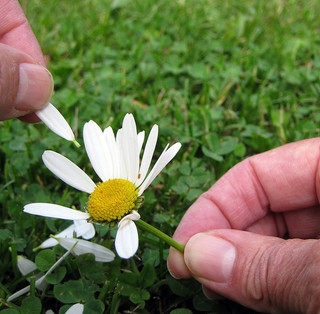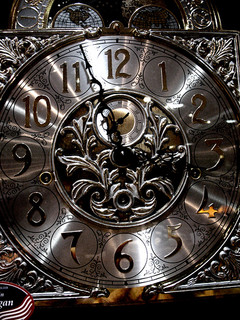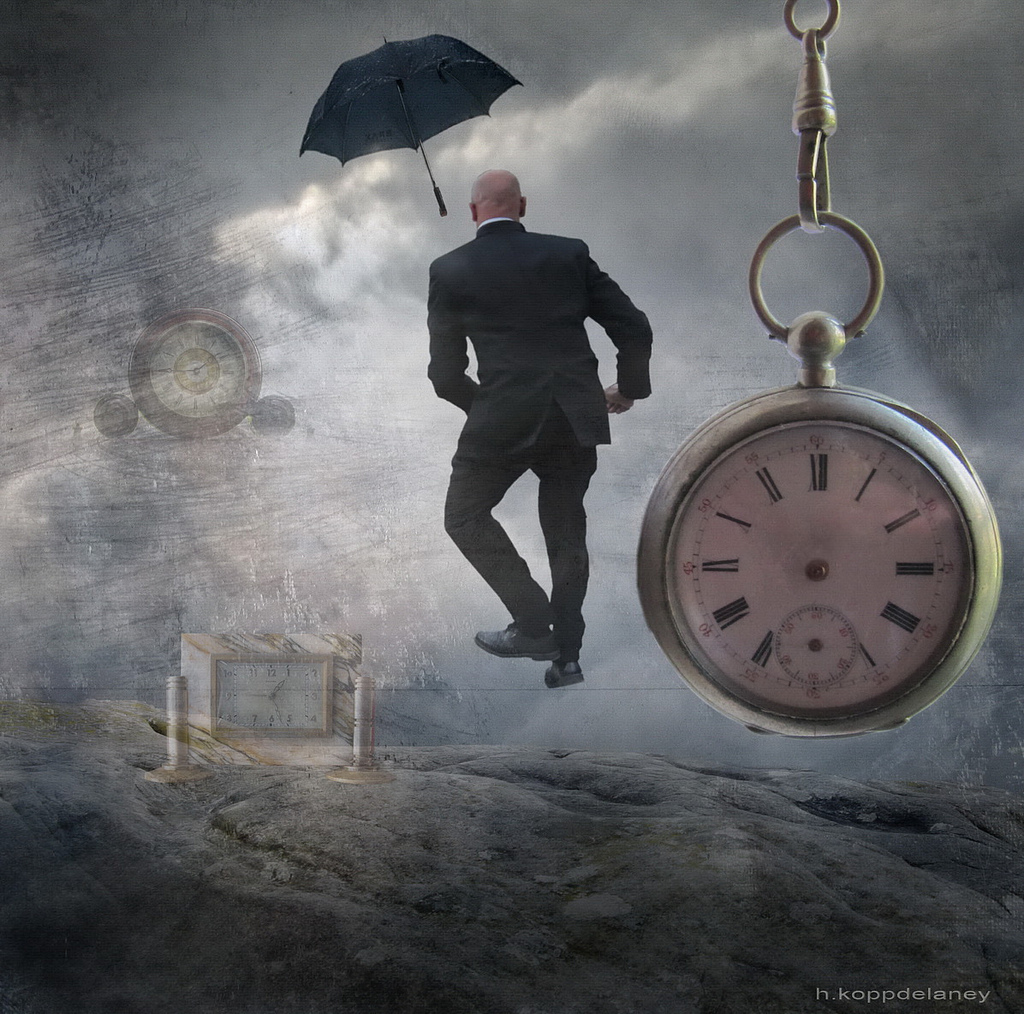The Smeared Rainbow: How Bipolar Disorder Can Be a Different Experience for Different People
I’ve had the opportunity to meet a lot of people with bipolar disorder, and one thing that I’ve really noticed is the way that bipolar disorder affects people in very different ways. The difference isn’t simply the difference between types like bipolar I and bipolar II. It also isn’t just the difference between people themselves. Rather, bipolar disorder really differs in the way that it manifests itself in people’s lives.
For this reason, I’ve noticed that it’s best to avoid any general advice about bipolar disorder. Instead, I like to discuss my own experiences about what has worked, and listen to what other people have to say about their own experiences. Of course, I’m not perfect in this, and I tend to let advice slip out, but I am trying.
So, I thought in this article, I’d discuss the different ways in which I’ve seen bipolar disorder affect people, and why I’ve increasingly appreciated just how varied a spectrum bipolar disorder is. Unfortunately, there’s really no way to discuss differences without categorizing those differences; that’s a flaw in language. Bipolar disorder may be something of a rainbow, but it is a smeared rainbow. Still, I find it useful to notice just how varied our experiences can be.
Prominence of Different Episodes

Public Domain
For some people, mania seems to be the primary issue. For these people, bipolar disorder often functions as an acute mental illness, with intermittent psychiatric emergencies. People who have frequent mania are often focused on trying to prevent or prepare for the next manic episode.
For other people, depression is the primary issue. Their experience of bipolar disorder is actually a lot like people’s experience of major depressive disorder. This interferes with life not generally as emergencies, but as a daily struggle to get out of bed or to “pull oneself out of the quicksand by one’s own hair.”
For other people, the cycle itself seems to be the main issue. They have a lot of variation in moods, which leads to different types of issues at different times. This leads to a whole host of coping strategies, depending on the situation.
Bipolar disorder, then, can be a quite different experience for different people. None of these is more “real” than the other; they are different overall ways in which bipolar disorder affects people’s lives.
Frequency of Episodes
In addition, there is a huge amount of variability in the rate of the episodes. Some people have episodes that are months long. Other people have as short as days. Then there are people who have ultra-rapid cycling in the transition between somewhat longer episodes (*raises hand*).
I’ve noticed that the frequency of episodes can really affect the general way in which people conceptualize what is going on. In general, the longer the episode, the more a sense of hopelessness or dread can set in of the next episode, especially the depressive ones. Months-long depressions can be especially debilitating.
On the other hand, rapid transitions of episodes can create a general feeling of instability in one’s life. It is difficult to know what the next few weeks will bring, and emotions start to feel especially ephemeral. As a rapid cycler, I’m in this category, and my regular readers may have noticed how much questions about “the real me” are prevalent in my concerns.
Different Types of Symptoms

Public Domain
For example, hypomania can manifest itself extremely differently. Some people have quite elevated moods and increased energy, that can lead them to be more productive. Other people can simply become very irritable. Many people have some mixture of the two. Needless to say, whether hypomanic episodes are elevated or irritable creates a major difference in how it affects people’s lives.
Similarly, in depression, there seems to be real difference in the levels of anxiety that people experience. Some bipolar people seem to have almost no anxiety at all, while for others, the anxiety is the most debilitating part of the condition. For me personally, I find anxiety the worst aspect of bipolar disorder, but other people have very different experiences.
Different Levels of Functioning
One thing that has really struck me about bipolar disorder is the way in which it really affects people’s functionality in different ways, especially in so far as how it affects our functioning at work. I’ve seen everything from people who seem to function better because they have bipolar disorder, while there are many people who find it impossible to work. There are many people in the middle whose functioning is impeded, but are able to hold down some sort of employment.
This has been a very important difference for me to notice. If I were to assume that bipolar disorder affected everyone in the same way, then it would be very easy to slip into the trap of thinking that bipolar people who don’t work are somehow just lazy.
However, this simply isn’t the case. Because of levels of severity, rapidity, and variability in types of symptoms, some people with bipolar disorder find it very difficult to hold down employment. There should be no shame in being unable to work because of an illness.
Avoiding Comparison
What I’ve really learned is that I can cause as many problems for myself by comparing myself to other people with bipolar disorder as I can by comparing myself to people who do not have a mental illness. True, that bipolar person over there may be extremely high functioning, but that doesn’t mean that I need to be. That bipolar person over here may have a lot more anxiety than me, and I can’t simply project my own experiences on to that person.
Bipolar disorder is a “spectrum”, which is a metaphor from rainbows. However, this isn’t quite right. Rather, bipolar disorder is like a bunch of paint swirled together on a canvas, with as many variations as there are possible combinations. Each of us has our own experience of the disorder, and there is always more we can learn about how the condition affects people.









I started reading some of your posts about a week ago and now I can’t get enough! In reading this post about our differences I find I have many similarities with the way you struggle with the disorder and the way I struggle with it. It actually made me feel good to read that I am not the only one out there (ultra-rapid cycling and with alot of anxiety) who suffers through these emotions. I find it hard to stay employed because of the frequency of my cycling and the anxiety I feel constantly being afraid of the next cycle and which will come first. I am productive in my hypomania and creative but absolutely non functioning durring a depressive cycle. Thanks for your words you are putting out into the world to help the rest of us see we are not alone. This isn’t only in our heads it is real!
Angela
You’re welcome, Angela. It really does sound like we’re having similar experiences. What we’re going through is very real, and I’m glad you’re enjoying the blog so much 🙂
Best,
Daniel
Hey Daniel,
I love your posts, love your mind and love your heart. You seem to come from a genuine heart-based quest for knowledge and to genuinely share ( from an egoless space).
Everything you say in your “rainbow” article is true. It is extremely hard to compare and as in life generally “if you compare yourself with others, you may become vain and bitter…” (Desiderata). I saw a very famous celebrity interviewed once (can’t remember his name). He suffered from severe depression and he had found a way to cope in his own unique way. When asked what medication he was taking he replied ” I don’t share that sort of information because what works for me may well NOT work for others”. I have never forgotten that.
Bipolar is an insidious disorder. It is “of the mind”….. yet the mind has to work it out. Sometimes that is very difficult, as the mind is a very powerful thing.
I’m glad I have found your site and I love reading your articles.
Namaste
Maz Barnes
Thank you for your response, Maz, and thank you. That’s a very interesting response from the celebrity. I’ve really noticed just how much medication especially varies from person to person, and I appreciate why the celebrity never says what he is taking. Sometimes, I think of mental illness as “pulling ourselves out of the quicksand by our own hair.” We need the very thing that is ill to get out of the illness. That can make it very difficult, but it also really makes it a worthwhile challenge.
Best,
Daniel
I FIND IT DIFFICULT TO REALLY UNDERSTAND MY BIPOLAR DISEISE EXEPT TO SAY THAT “EXTREME ANXIETY” IS ALL PERVASIVE IN MY DAY TO DAY LIFE, I, LIKE PROBABLY MANY OTHERS SELF-MEDICATE WITH WHAT EVER IS AVAILABLE, I;M 52YRS AND I COPE ON A DAY AT A TIME BASIS ONLY, I CAN’T HOLD A JOB BUT HAVE DONE IN THE PAST AND MISS WORKING ALOT. ANOTHER HUGE PROBLEM IS “MIS DIAGNOSIS”
Hi Christopher,
I’m sorry to hear you’ve been having such trouble with anxiety and diagnosis. I’ve found that really looking around for the treatment that works for me has really helped.
Thanks for writing this blog. I’m not bipolar, but found the link because a creative online friend who is, posted it. I took in a friend with bipolar for a few months and it was difficult. She had many problems, including heavy drinking just to sleep during her manic time with me. I’d only known her when she was struggling at work and suffering depression, which was something I’d also experienced. I’m glad to understand more of what she was going through. I’ll be back to read more. You’re doing a service both for folks with the problem and those who know them. Thanks again.
You’re welcome, Barbara, and thank you for visiting :). It’s great to have people here who are interested in learning more about bipolar disorder. We really appreciate when people take the time to learn about what is going on with us. Thank you.
I am waiting for an appointment with a psychiatrist. My GP has given me a possible diagnosis of Hypomania! (I have suffered depression,anxiety and panic attacks for over 20 years).
Reading this has been an eye opener, i can lift whole sections out and say “that is me”! ?
Thank you for writing this article…I don’t feel so alone now! 🙂
You’re welcome, Emma :). Bipolar can be really isolating, but we’re not alone in dealing with it.
Hi, I have just discovered your site and commend you on all the great information and discussion here.
I have always felt that the huge variety of “symptoms” and regularity of “episodes” amongst those with this diagnosis fascinating. The DSM also constantly adds to the “spectrum” as clearly the original classifications struggle to cover all of these experiences.
This suggests to me that the model is actually flawed in the first place, especially as so many I have known (including myself) receive little or no relief or “stability” from medication, which is still the first line of treatment.
This shouldn’t be a surprise knowing how differently BiPolar affects people, yet still we in the western world attempt to categorize something which seems to defy all efforts to do so.
Perhaps we would be better off if we dealt with the underlying issues, identified our warning signs and triggers, adopted healthy lifestyles and environments, and developed robust coping strategies for the bad times. This is what I did through self-education and personal development, and this did away with the need for medication anyway, which was in fact ruining my life rather than helping me. What do others think?
Hi Shane,
I’m actually quite hopeful about what is coming out in the DSM-V, which should be coming out next year. Instead of broader categories, there will instead by “specifiers” that refer to our individual symptoms. It means we’ll be less likely to be thrown into one big box (I hope).
Best,
Daniel
I just wish there was a more holistic approach to this condition (I only see it as an illness when I’m unwell, which hasn’t been for 10 years). It is only the so-called “medical model” that considers these experiences as a “disorder” and despite a plethora of conflicting research, insists that there is only one form of “treatment.”
I believe ALL human beings are unique individuals, and attempting to categorize and pathologize human behaviour, especially when dealing with peoples’ reactions to trauma and abuse, seems the real madness to me.
If we all enjoyed stability and Recovery from this approach I would gladly support it, but the 8 years I have worked in the Mental Health field have shown me the complete opposite.
We have created an extremely wealthy and powerful drug industry though, and we need to remember it is them who do the bulk of the “research” these theories are based on-hardly an unbiased point of view, I would suggest.
I was finally diagnosed with Bipolar 2 recently. Afterward, I went to my car and cried… uncontrollably. I didn’t cry because I was diagnosed bipolar but because I heard someone tell me for the fist time that there is a reason for how I felt and there is hope. Hope that I can manage my illness. That I can lead and deserve a better life. I wasn’t just shy, I wasn’t just weak and lazy. The way I felt wasn’t something I should have been able to just “snap” out of if I was strong enough… no matter who said I should. I actually understood finally why I would find myself waiting for that rare “good” day to get every project done, call all my friends and make plans to see them. I’d do everything as fast as I could. I’d desperately try to squeeze everything in. I knew why a few days later I’d text them that I couldn’t make it to dinner or whatever and lie about why. I finally understood why for a few precious days a year the fog I lived with cleared. I made quick concise decisions. I didn’t doubt myself. I had energy and dreams… plans. I could actually feel my brain seem to engage with the world and I desperately wished that the fog would never come back. I wondered who I would have been without that fog. Then I’d realize I am the fog and the sun that breaks through. Both were me and I’d never be able to separate the two…. I am me. That realization only made me feel powerless and weak again. Now, I am seeing a psychiatrist and a therapist. Desperation was what finally got me to really reach out for help for the first time and their conviction I could live a fuller life got me to go to the next appointment and then the next….. Baby steps and encouragement have giving me the strength to keep trying. I learned each step, no matter how small it seemed to anyone else, was a triumph…from making myself eat three times a day to walking outside my house . Managing my illness will always be a work in progress but now I know I can do more than survive my life… my life can be better, day by day…triumph by triumph. When I do slip back, I know I can pick myself up with hard work and move forward again. I came across a quote which spoke to me: “In the midst of winter, I finally learned that there was in me an invincible summer.”
— Albert Camus. I hope this quote will strike a cord in someone who struggles and hopes too.
I can definitely relate to that experience, Jennifer, of trying to cram everything in when hypomanic. I’m often amazed just how uneven my productivity has been. I really like your image of the fog and the sun. It’s a really profound insight about what it’s like to be someone with bipolar disorder. Thank you.
p.s. As you probably guessed, I was misdiagnosed as having major depressive disorder. (to be completely honest I diagnosed myself and told my GP what to give me. Far from ideal and netted no results. Surprise, surprise) Since I’ve been diagnosed as “bipolar 2” I have found that a huge part for me is played by anxiety. I think bipolar IS a smudged rainbow. I am me and I have my own color. Before I read this blog though….I’ve pictured it more like a bell curve I had in school… extreme depression on one end and manic on the other. Once I did. I stopped comparing myself to anyone else bipolar. Apples and oranges all in the same basket.
I’m really glad to hear that the image was helpful, Jennifer.